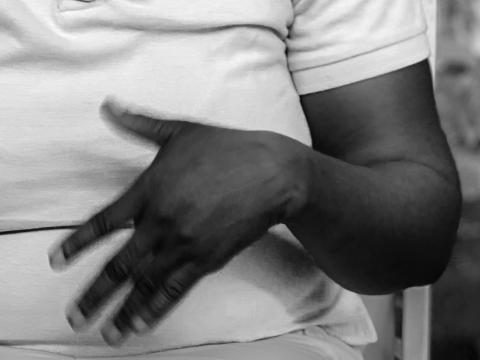Haiti's Displaced Mothers: Struggling for Survival and Dignity

The testimonies below are real and represent the harsh reality of thousands of women around the world. We have changed the protagonists’ names for security reasons.
Ana’s voice trembles, tears pooling in her red-rimmed eyes as she recounts the events that shattered her life. “The children were there when it happened,” she says, struggling to speak. “They heard him pleading for his life.”
On August 12, 2023, violence erupted in the neighborhoods of Carrefour-Feuilles and Savanes Pistaches, a wave of terror that displaced thousands and left families shattered. For Ana, 29, the violence not only took her home but also claimed the life of her partner, the father of her four daughters.
“When the fighting started, we tried to stay,” Ana recalls. “But as things worsened, my partner helped us escape through the back. He stayed behind and was caught. They burned him with the house.”
Now, Ana—with no family support—finds herself alone, caring for her daughters aged 10, 7, 4, and 1. She struggles daily with the trauma of what they witnessed and the weight of keeping them alive in a country where armed violence, economic instability, and displacement are the norm.
The violence of August displaced 1,139 households, adding to an already dire humanitarian crisis in Haiti’s capital. For women like Ana, survival means confronting unimaginable choices. Initially, she and her children sought refuge in a camp, but unsanitary conditions and a lack of water made it unlivable. Her daughters started falling ill, forcing Ana to move into a stranger’s home.
“Sometimes, it’s hard to find food for the children,” she says, her voice heavy with pain. “They ask why they can’t go to school. That hurts me the most. I tell myself maybe if I die, someone else can care for them. But then I refuse. If I kill myself, their lives may be worse than mine.”
Amid this darkness, Ana found a lifeline: Toya, a local organization supported by World Vision, a global humanitarian group with deep experience aiding vulnerable populations. Recognizing women and children's challenges in conflict zones, World Vision provided Ana with psychosocial support and the means to rebuild.
“When I came to Toya, they told me that life is not finished,” she says. Through counseling sessions with a psychologist, Ana began to work through her trauma. “If I had thoughts of hurting myself, those sessions helped me overcome them.”
World Vision also gave Ana 25,000 gourdes (approximately $200), enabling her to start a small business selling cookies and bread with peanut butter. While modest, the income ensures her daughters are fed.
“Before I started the business, I couldn’t sleep,” she says. “Sometimes, I would pray that morning wouldn’t come because I had nothing to feed them. Now, at least, I can keep them alive.”
“I wish to have the means to take care of my children, send them to school, and have a place to live,” Ana says, her voice breaking. “I ask for prayers for Haiti. If the country wasn’t like this, their father would still be alive, and we wouldn’t be in this situation.”
As Haiti grapples with unrelenting violence, Ana’s story is a reminder of the human cost borne disproportionately by women and children. With support from organizations like World Vision, there is hope that families like Ana’s can find their way to a safer and more stable future.